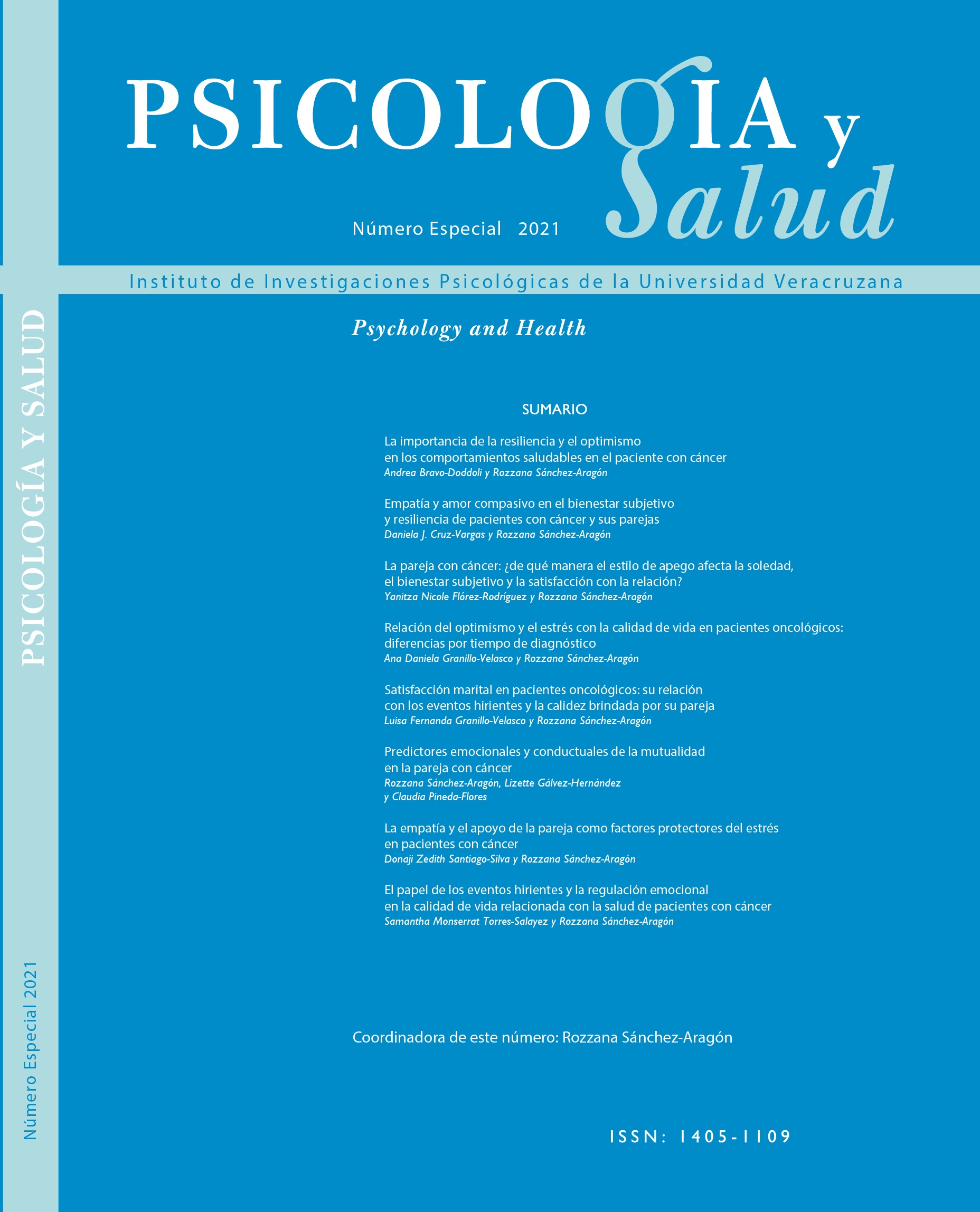Abstract
Cancer is one of the main public health problems that occur worldwide and in the case of Mexico, it is the third disease that causes deaths. This being a disease that lacks a definitive cure, the consequences it brings in the patient's life are irreversible and difficult to cope with. In the same sense, the couple is impacted by the disease and the role they must assume as caregiver. Thus, it was essential in this research to integrate little-studied variables in people with cancer and their partners. Therefore, the objectives of this research were: (1) To explore the differences between people with cancer and their caregivers regarding the variables of attachment, loneliness, subjective well-being and marital health and (2) Identify the relationship between the type of attachment with loneliness, subjective well-being and marital satisfaction in people with cancer and their caregivers, separately. All this in a sample of 195 couples from Mexico City, whose ages ranged from 18 to 79 years. The results indicate that it is people with cancer who have the most effects on the perception of loneliness, subjective well-being and satisfaction with their relationship. Likewise, strong associations were found especially between participants with secure attachment and the support they received from their partner, family and friends, both in people with cancer and their caregivers.
Esta obra está bajo una Licencia Creative Commons Atribución 4.0 Internacional.
Usted es libre de:
- Compartir: copia y redistribuye el material en cualquier medio o formato
- Adaptar: remezclar, transformar y construir sobre el material para cualquier propósito, incluso comercialmente.
El licenciante no puede revocar estas libertades siempre y cuando siga los términos de licencia.
Bajo los siguientes términos:
- Atribución — Debe dar el crédito adecuado, proporcionar un enlace a la licencia e indicar si se realizaron cambios. Usted puede hacerlo de cualquier manera razonable, pero no de ninguna manera que sugiera que el licenciante lo respalda a usted o a su uso.
- Sin restricciones adicionales — No puede aplicar términos legales o medidas tecnológicas que restrinjan legalmente a otros hacer cualquier cosa que la licencia permita.
Avisos:
- Usted no tiene que cumplir con la licencia para elementos del material en el dominio público o cuando su uso está permitido por una excepción o limitación aplicable.
- No se dan garantías. Es posible que la licencia no le dé todos los permisos necesarios para su uso previsto. Por ejemplo, otros derechos como la publicidad, la privacidad o los derechos morales pueden limitar la forma en que utiliza el material.


